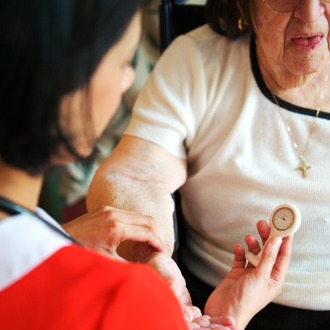CCGs given £20,000 each to roll out personal health budget scheme

Exclusive NHS England has awarded 191 CCGs across England £20,000 each to help them get personal health budgets up and running, Pulse has learnt.
The total £3.8 million injection into the programme aims to help areas where personal health budgets have not yet been trialled set up the ‘systems and processes’ needed to meet the projected national roll-out targets, NHS England said.
But GP commissioning leads warned the money was a ‘tiny’ amount, given the management costs involved in setting up and running the budgets.
Personal health budgets form a key plank of the Government’s ‘personalisation’ agenda for health care, and involve giving patients an agreed pot of money for them to choose which services they want to buy to suit their needs.
Since April any patients on NHS Continuing Healthcare are entitled to ask for a personal health budget, and from October – following a high-profile intervention from care and support minister Norman Lamb – they will gain a fundamental right to have such a budget. From next April, NHS England has promised to roll the programme out further to patients with long-term conditions.
The programme has attracted much controversy ever since Pulse revealed patients had used their budgets to buy items such as theatre tickets and frozen meals, and social care policy experts recently published a paper questioning the positive conclusions drawn by the Government from pilot evaluations.
In particular, they warned the Department of Health had underplayed the financial support pilot sites had received and that the scheme could turn out to be much more expensive than anticipated.
Related stories
Analysis: Do personal health budgets offer value for money?
Personal health budget scheme ‘wholly inadequate’ and may worsen care
Despite the concerns, NHS England claims it is committed to promoting personal health budgets and rolling out the scheme on schedule.
An NHS England spokesperson told Pulse: ‘Personal health budgets are not about new money but are a way to use money differently – it’s for CCGs to identify funding for budgets locally. Last year we were able to offer a small amount of funding to all CCGs, and 191 of the 211 CCGs took up this offer and received £20,000.
‘This money was not to fund personal health budgets themselves but rather to help CCGs develop the necessary infrastructure and develop support for people who are eligible for personal health budgets.’
However, Dr Michael Dixon, chair of NHS Clinical Commissioners and a GP in Cullompton, Devon, said the £20,000 injection was a ‘tiny amount’ and questioned whether personal health budgets would be able to take off.
Dr Dixon said: ‘That seems a tiny amount, it’s not beginning to pay for the management costs for an average CCG. I think it’s on the backburner for some, because it’s gone incredibly quiet.’
He added: ‘It’s a bit like IAPT, everyone is meant to be able to get CBT [for depression] but you can’t get it for love nor money in Devon. It will depend how available CCGs make it, and how positive or attractive they make it.’
Dr Sam Everington, GP and chair of Tower Hamlets CCG, said CCGs were unlikely to push personal health budgets in such cash-strapped times.
Dr Everington said: ‘The feedback I’ve been getting is there has not been a lot of uptake, and I have to say choosing chronic diseases would not have been my first choice.
‘Competing time and capacity priorities will come in at the end of the day. In the good times, going back to five or six years ago, CCGs might have had excess money to really market and promote it but I can’t see that happening – simply because of the financial pressures everyone is facing.’
Pulse July survey
Take our July 2025 survey to potentially win £1.000 worth of tokens

Visit Pulse Reference for details on 140 symptoms, including easily searchable symptoms and categories, offering you a free platform to check symptoms and receive potential diagnoses during consultations.










